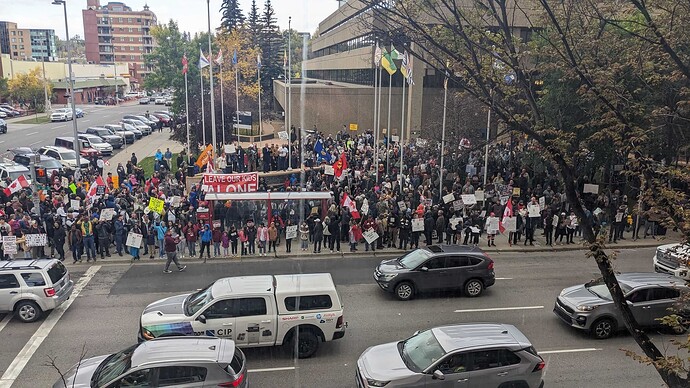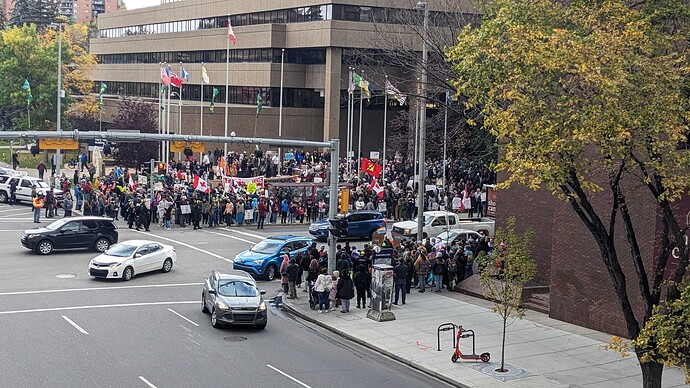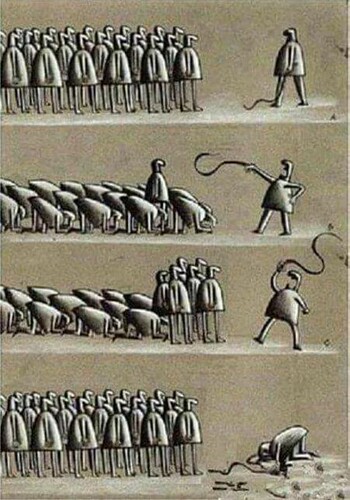In an ideal world, there would be rule of law. Politicians create the rules- the laws. Judges interpret the rules in disputes; they do not rewrite existing rules because that is not their job.
Increasingly, the problem is that the courts are ignoring facts and established law. They give out rulings that they ‘feel’ is right. What this means for healthcare professionals and patients is that we need to fight politically. The government can take away our jobs, jail us (Tamara Lich, Artur Pawlowski, Coutts Four, etc.), or deny us access to healthcare unless we fight for our rights and freedoms.
Legal Canons and Social Fables: The Law in Canada Has Never Been Perfect but Now it is Losing its Way
Bruce Pardy, a law professor at Queens University, has written an article with examples of legal cases showing how the Canadian legal system actually works. What you need to know is that rule of law has been slowly going away for a while now, well before COVID. In 2018 (pre-COVID), the Supreme Court of Canada decided in R v Comeau that the constitution doesn’t mean what it says. The Supreme Court decided to rewrite the constitution.
If you have the time, I recommend reading Pardy’s article so that you understand how the law now works in Canada.
- Fable 1: The Criminal Justice System is Fair and Even-Handed
- Fable 2: Judges are Impartial
- Fable 3: Courts Find Facts with Evidence
- Fable 4: Justice is Blind
- Fable 5: Courts Keep Public Bodies within their Powers
- Fable 6: The Constitution Means what it Says
- Fable 7: Public Inquiries Provide Accountability
The new rules for healthcare professionals
The 2023 Ontario divisional court ruling against Akbar Khan (alternative cancer doctor) is disturbing because of the precedent that it sets.
The CPSO gets to determine what ‘science’ is. The CPSO gets to set the standard of care. From what I understand legally, the CPSO should not have the power to determine the standard of care because politicians didn’t pass laws that gave them that power. Now, the Ontario divisional court is deferring to the CPSO in terms of what is and isn’t the standard of care:
The use of treatments that are not part of generally accepted or “conventional” therapies or the use of “conventional medications” in an unconventional or “off-label” manner is governed by Policy Statement #3-11 issued by the College of Physicians and Surgeons of Ontario entitled “Complementary/Alternative Medicine.”
You now have to look up the policies (on the CPSO’s website) to figure out what the standard of care is.
Not surprisingly, the CPSO’s vision of medicine has elements of ‘woke’ social justice ideology. The CPSO’s CAM policy more or less discourages CAM if it competes with conventional healthcare. However, there is a ‘cultural’ exception for CAM:
When providing care, it is important for physicians to recognize that some therapies may be practised within a specific cultural context and have particular importance to certain cultural groups. Providing care in a manner that is culturally competent and respects a patient’s culture, beliefs, lifestyle, healthcare goals and treatment decisions is an important part of medical professionalism.
Practitioners should stick to either mainstream CPSO-approved healthcare or ‘culturally competent’ healthcare, as determined by the CPSO.
If you happen to push the CPSO’s political agenda, they will look the other way. There is no problem if a doctor breaks the well-established written rules. It was ok for a doctor (Dr. Christopher Sun) to vaccinate babies when the COVID vaccines weren’t authorized for babies yet.
However, the CPSO will persecute those who spread COVID ‘misinformation’ and the people who stand up to the CPSO (e.g. Akbar Khan who runs CPSO Crimes.com, Chris Pinto, etc.). If you want to keep your license, you better pay attention to the unwritten rules such as not criticizing the CPSO like Akbar Khan did.
One major problem with the current regime is that the CPSO will use a medical pretext to go after doctors on non-medical grounds. The CPSO does not currently face accountability from the Ontario Minister of Health or the courts.
Pushing back against the new normal
The fringe majority has numbers on its side. Joe Rogan is currently the biggest “news” platform around and is more popular than the top TV news program. Independent news is rapidly overtaking legacy mainstream media.
At the #1MillionMarch4Chidren, the pro-parents side (“hands off our kids”, no woke indoctrination) were solidly outnumbering the counter-protestors (which promoted 2slgbtqia+ social justice).
The counter-protestors are in the bottom middle of the picture below (with pride flags), on the other side of the street.
Source: https://twitter.com/TrueNorthCentre/status/1704533578892087618/photo/1
Licensed professionals are getting picked off on an unfair battlefield
I see a lot of licensed professionals waste money in the legal system trying to win based on facts or the law. So far, almost all of these battles have been losing battles. The exceptions include Akbar Khan and Kulvinder Kaur, who have had mild success in winning one or more battles. But will Kaur really win her war? For Kaur’s defamation battle, Kaur’s side lost and could potentially pay $1.1M to the defendants.
Akbar Khan’s outcome was a little better as he did a number of things that make sense.
- He recognized the importance of fighting in the ‘court of public opinion’. He did media interviews, setup CPSOCrimes.com, and (less importantly) attended a CPSO protest. He recognized that there was a political aspect to his case.
- He used a paralegal instead of a lawyer to keep his legal costs down. (The downside to being a self-represented litigant is that you have to become your own lawyer and to skim through enough court cases to understand how the law actually works in the real world.)
- He recognized the mechanics of the legal and administrative system. Some laws such as the ones targeting peer-to-peer file sharing (Internet piracy) are difficult to enforce; such laws don’t really work in the real world. As far as medicine goes, Khan hired a nurse practitioner who is able to prescribe medications. So uh… he still owns businesses that offer medical services… if you catch my drift.
Pushing for change
At the end of the day, we get to decide whether or not we stand up and choose freedom.



